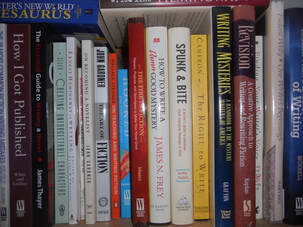 I enjoyed reading newspaper columns and books by Erma Bombeck when I was growing up. She was funny, sometimes hilarious, and was always grounded in real life. My mom thought that Erma and Ann Landers should be required reading for teenagers. I had never heard of Nora Ephron until I read some quotes in a writing magazine. I ordered a couple of books by her and one compendium of her work. At first, I thought she was the successor to Erma, but Nora didn’t have the simple honest amateurism of an Erma. Nora was a long-time professional columnist, her work appearing in a number of newspapers and magazines. She was funny not because she was a comedian, but because of her wit, insight, and identification with the reader. Nora died in 2012 at the age of 72. I could repeat what I’ve read in the Nora Ephron pages of Wikipedia, but I’ll just recommend reading them yourself. I will, however, entice you with facts: Remember the movies When Harry Met Sally? Sleepless in Seattle? You’ve Got Mail? Julie and Julia? Nora not only wrote or helped write the screenplays for those movies, she directed a couple, earning Academy Award nominations doing it. Her talent was come by naturally: her parents were Hollywood screenwriters of some fame and Nora grew up meeting the movie crowd that surrounded her parents, and, obviously, watched how the craft was done. She knew most of the actors and actresses in Hollywood, and most of the newspaper and magazine elites in New York City; she lived in both places and was definitely in love with big city urbanism. She was creative, very liberal, witty, funny, and had a definite style when it came to living. She was also well-known as a self-taught chef and many of her columns and books are filled with recipes. The compendium of essays, articles and stories that I read bear witness to the large number of personalities she knew and the decades-long writings that attracted and entertained her readers. I enjoy her writing. If nothing else, she exudes comfortableness. That is, she’s a person that you might like to find in a booth in some out-of-the-way diner who would share the time with you, excite you, fascinate you, entertain you, all with a laid-back, comfortable way of talking. She was always opinionated, but I get the feeling that, even with a debate level topic, she’d still be a person to whom communication was important – she’d want to say something that would make you want to listen. As you talked, you’d probably notice that she not only speaks well, but speaks in whole sentences and full paragraphs. Stephen King believes that this skill is vital to writing, that the building block of good writing is not the sentence but the paragraph. That’s where all those words and sentences, the nouns and verbs and linkages, and the fundamental thoughts come together to clearly express what the writer is wanting to say in a nice, concise package. Listening to someone who talks in paragraphs is very much like listening to someone tell a story – individual words and individual sentences are not enough to draw in a listener. You need full-bodied paragraphs where the words and structure of the language gives you enough time, time, time to get an idea or thought or comment or explanation across. Nora Ephron knew how to use paragraphs. That’s the way she wrote and is how we should all learn to write.
0 Comments
Leave a Reply. |
AuthorDon Willerton has been a reader all his life and yearns to write words like the authors he has read. He's working hard at it and invites others to share their experiences. |

 RSS Feed
RSS Feed